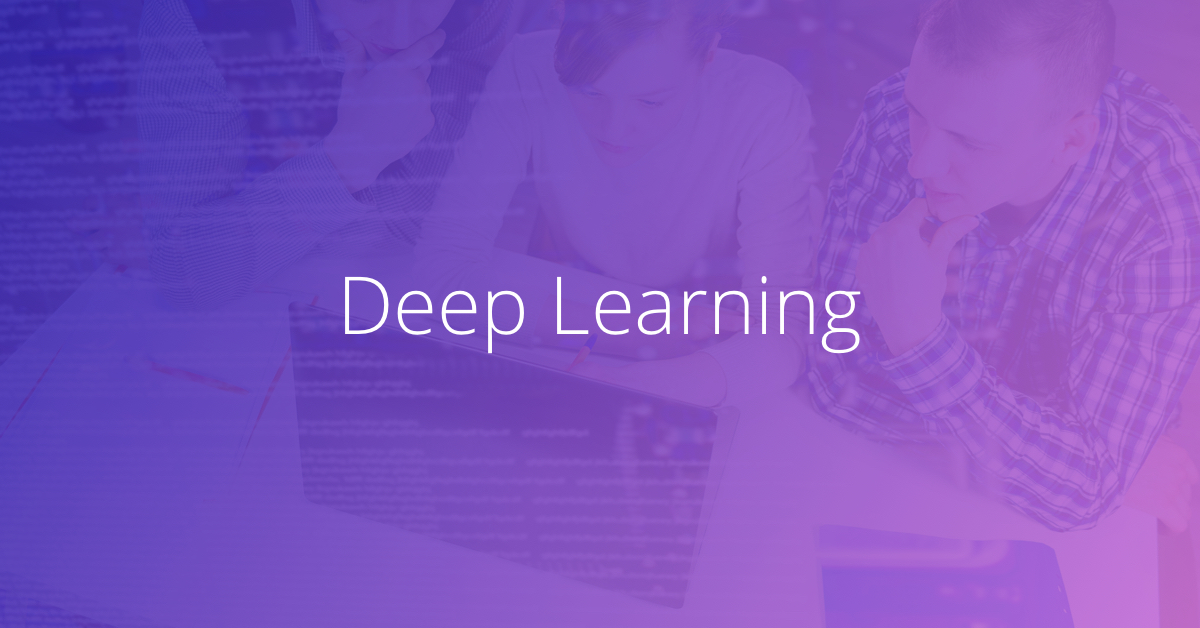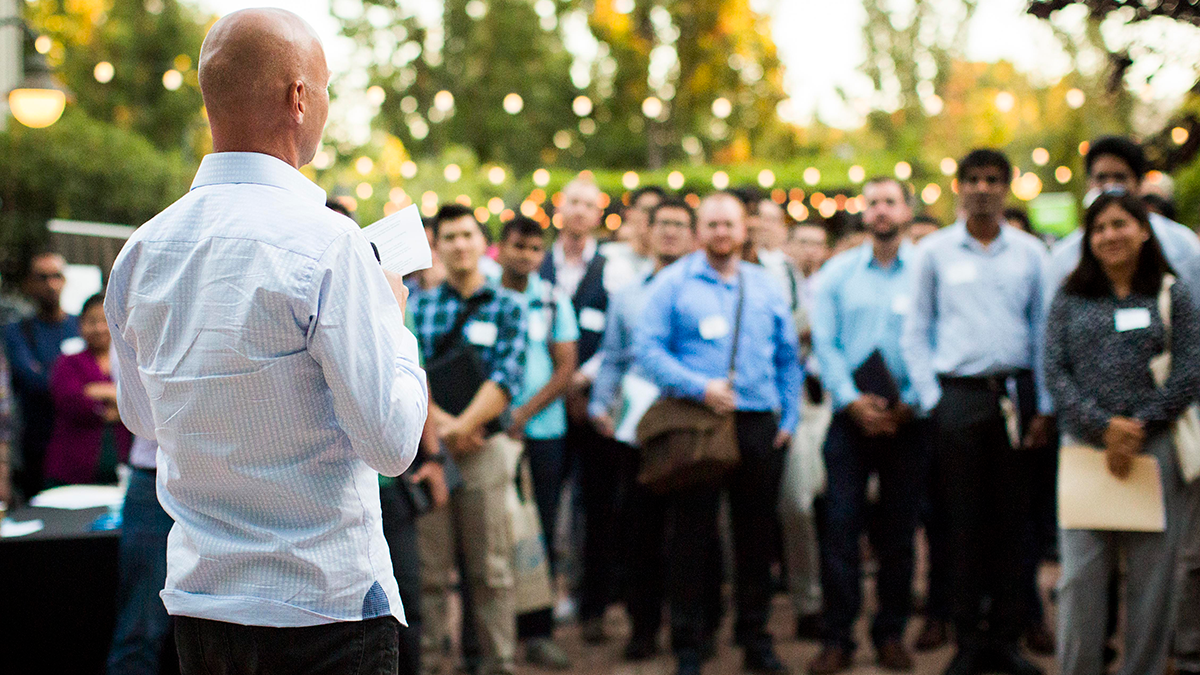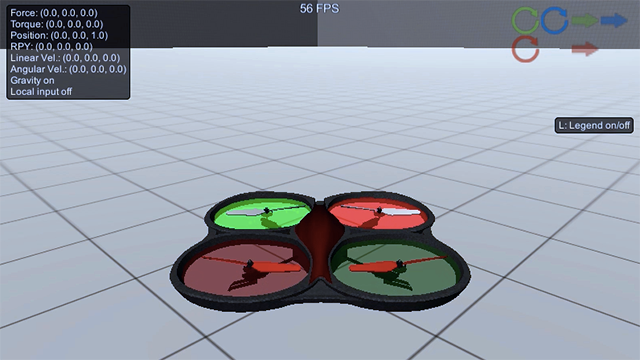
When the Udacity Deep Learning Nanodegree Foundation program launched in January of 2017, it was the first comprehensive program of its kind, offering an unrivaled opportunity to master one of the world’s most transformational technologies. Since then, more than 10,000 students have enrolled. Together, these students represent the future. They are the next generation of deep learning experts who will define how these technologies change our world for the better.
The energy and dynamism in the deep learning space is incredible, and we are challenged every day to continue delivering the best learning experience on the planet. As the field of deep learning grows in both complexity and opportunity, so too must our program deepen and intensify.
This is why we are so excited today to announce incredible new additions to our Deep Learning Nanodegree Foundation program!
Featured Instructors
You may know Sebastian Thrun as the founder of Google X, and of course Udacity. You may also be familiar with his role in the history of self-driving cars. You may not know, however, that he is currently working with a team at Stanford on a groundbreaking deep learning project for skin cancer detection and classification. The method they’ve developed, which is already showing remarkable accuracy, uses a complicated architecture of convolutional neural networks, and Sebastian will be teaching a new lesson on this topic for the Deep Learning Nanodegree Foundation program!
Innovations emerge at dizzying speed in the fields of deep learning and artificial intelligence, but very few of these have been as significant or impactful as the invention of Generative Adversarial Networks (GANs) by Ian Goodfellow. Yann LeCun, Director of AI at Facebook, has even gone so far as to say that GANs are the “the coolest idea in deep learning in the last 20 years.” We are so pleased to count Ian Goodfellow as one of our Featured Instructors in the Deep Learning Nanodegree Foundation program. The section Ian teaches on GANs is joined by new projects focused on convolutional neural networks (a dog-breed classifier!) and deep reinforcement learning (a quadcopter project!).
Rounding out our trio of Featured Instructors is Andrew Trask. Andrew is an Oxford-DeepMind Scholar, and the author of Grokking Deep Learning, which publisher Manning Publications describes as, “the perfect place to begin your deep learning journey.” Andrew was previously a researcher and analytics product manager at Digital Reasoning, where he trained the world’s largest artificial neural network with over 160 billion parameters! Andrew’s instruction in sentiment analysis represents an extremely valuable addition to this program’s curriculum.
Deep Learning Nanodegree Foundation Program from Udacity on Vimeo.
Experts-in-Residence
Collaborations with innovative companies and brilliant thinkers have been a cornerstone of the Udacity approach from the beginning. Whether it’s scholarships, curriculum development, or hiring partnerships, our students derive unparalleled value from these relationships, and we’re thrilled to announce one of the most exciting new developments on this frontier, our new Experts-in-Residence initiative!
Udacity Experts-in-Residence are an elite group of deep learning practitioners working at some of the most innovative organizations in the world, including OpenAI, Google Brain, DeepMind, Bengio Lab, and more. In moderated office hour sessions, students will enjoy direct access to these pioneering thinkers, gaining the kind of actionable insights and guidance that only working professionals in the field can offer.
In addition to the above, our resident program evangelist Siraj Raval will be rolling out a new content series in which he engages with a rotating cast of deep learning experts from across the globe on a bi-weekly basis. He’ll be gathering insights on the latest developments in the field from the most compelling voices working today, and we’ll be making this video content available exclusively to our students.
New Content
When it comes to creating material for our programs, we strive to balance hands-on projects with enhanced conceptual content, and this is one of the key differentiators of our approach. Our goal is to go beyond code and formulas, to teach deep learning concepts. Udacity students don’t just master a technology, they develop an intuition for it—Udacity students learn to think deep learning, which is the most important skill of all!
Here is a quick summary of some of the new offerings in this program:
Enhanced Conceptual Content
- New material in Neural Networks, Convolutional Neural Networks, and Recurrent Neural Networks
- New section on Long Short-Term Memory Networks.
- New section on Deep Reinforcement Learning.
Hands-on Projects and Labs:
- New Convolutional Neural Networks Project: “Dog Breed Classifier”.
- New Deep Reinforcement Learning Project: “Teach a Quadcopter to Fly”
- New Tutorials and projects in Keras and NumPy, in addition to TensorFlow.
- New in-classroom labs, studying datasets such as IMDB, Cifar-10, MNIST, and more!
Enhanced Conceptual Content
We believe that every formula, every algorithm, every model, has a beautiful pictorial explanation behind it. Our mission is to uncover these explanations with our students. We don’t shy away from the formulas, the code, and the implementations, but when every plus sign and every if statement has a conceptual reason to be there, we want our students to internalize and understand what these reasons are.
To ensure students gain a thorough understanding of the most important topics in deep learning, we have updated the sections in Neural Networks, Convolutional Neural Networks, and Recurrent Neural Networks, and we have also added a section in Long Short-Term Memory Networks.
Enhanced Hands-on Projects and Labs
To add a layer of complexity to our Convolutional Neural Networks project, we are challenging students with a new and unique dataset, and a task that is levels above simple image classification. In the project, students will design and train a convolutional neural network to analyze images of dogs and correctly identify their breeds. The process involves learning about, and applying, transfer learning, a method in which the use of pre-trained state-of-the-art models such as VGG, ResNet, Inception, or LeNet, can push models even further, and help achieve truly state-of-the-art performance.
Deep Reinforcement Learning
Many of the most important recent advances in AI share a common denominator: Deep Reinforcement Learning. As but one example, DeepMind successfully applied deep reinforcement learning to the legendarily complex board game Go, and famously managed to beat the world’s best human player; a feat thought impossible just a few years ago. Other examples includes Google’s use of deep reinforcement learning for resource optimization, which resulted in a 40% reduction of their data center cooling bill!
Deep reinforcement learning is having a particularly profound impact on the fields of robotics and autonomous flight, and we cover both with an amazing new project in which students will design a deep reinforcement learning agent to control several quadcopter flying tasks, including take-off, hover, and landing.
Keras and TensorFlow
Google recently announced that Keras will be the first high-level library added to the core TensorFlow, which makes TensorFlow the default backend for Keras. This is exciting news, as this means Keras is just as powerful as TensorFlow, yet with a much simpler interface, making it much easier to learn.
When a student builds their first neural network, we want the complexity to be in the layers and the activation functions, not in the code. Accordingly, the Convolutional Neural Networks project will be in Keras. Once students have more experience with the code and the architectures, they move on to TensorFlow, which has more flexibility and allows customization of architectures to a greater degree. The Recurrent Neural Networks project and the Generative Adversarial Networks project are both in TensorFlow.
Advanced Studies and Deep Learning Careers
One of the signature benefits of enrollment in the Deep Learning Nanodegree Foundation program is that graduates earn guaranteed admission into either our Artificial Intelligence, Robotics, or Self-Driving Car Engineer Nanodegree programs, all of which feature groundbreaking content, and a continuing wealth of deep learning projects. These advanced programs—built in collaboration with industry leaders like Google, IBM, Amazon, NVIDIA, Mercedes-Benz, and more—ensure you’re career-ready, and uniquely prepared to fill vital roles at innovative organizations. There are no other learning experiences like these anywhere in the world, and the job opportunities our students are exposed to represent the culmination of a learning journey that begins with the Deep Learning Nanodegree Foundation program.
As but one example of our commitment to seeing graduates earn rewarding employment, we recently hosted a Hiring Partner event for graduates of our Self-Driving Car Engineer and Artificial Intelligence Nanodegree programs. 14 companies participated—an incredible gathering of world-class organizations: Amazon, BMW, Bosch, Continental, Didi Chuxing, IBM Watson, Google, JD.com, Lyft, Mercedes-Benz, NVIDIA, Uber ATG, Volkswagen, and Voyage. Over the course of the event, partners conducted over 150 interviews, and collected hundreds more resumes to follow up with!

The Power of Deep Learning
Earlier this year, a provocative article in The New Yorker entitled A.I. VERSUS M.D. highlighted the work of Sebastian Thrun and his team on skin cancer detection. In that article, Sebastian discusses how the death of his mother at the age of 49 to breast cancer informed his desire to find a better detection solution using technology:
“Most patients with cancer have no symptoms at first. My mother didn’t. By the time she went to her doctor, her cancer had already metastasized. I became obsessed with the idea of detecting cancer in its earliest stage. And I kept thinking, could an algorithm help?”
As their work has shown, the answer is a resounding “Yes,” and this is just one example of the power of deep learning, and of its potential to dramatically improve our lives and our world.
To enroll in the Deep Learning Nanodegree Foundation program is to take your first steps on a journey during which you will not only witness firsthand the true power of this technology, you will learn to harness it yourself in the service of amazing and progressive innovations.
“Just as machines made human muscles a thousand times stronger, machines will make the human brain a thousand times more powerful.” —Sebastian Thrun
Enroll in the Deep Learning Nanodegree Foundation program today, and experience the power of deep learning as you embark on the journey of a lifetime.






